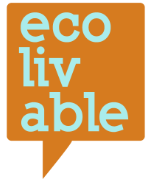The cultural landscape is undergoing a significant transformation, particularly in the way society perceives the concepts of good and evil. This shift is driven by a growing awareness of the agendas pushed by media and government, leading to a reevaluation of traditional values and beliefs. Here are some notable cases that illustrate this shift:
Political Shifts
In recent years, there has been a noticeable change in the political arena. Politicians who were once seen as untouchable have been voted out of office as the public becomes more aware of their actions and policies. For example, the election of Donald Trump in 2016 and his subsequent re-election in 2020 can be seen as a reaction against perceived “woke” agendas and a desire for a return to traditional values. Similarly, the rise of populist leaders in Europe, such as Viktor Orbán in Hungary and Matteo Salvini in Italy, reflects a growing discontent with the status quo and a pushback against progressive policies.
Entertainment Industry
The entertainment industry has also felt the impact of this cultural shift. Movies and TV shows that were once celebrated for their progressive themes are now facing backlash and poor box office performance. For instance, Disney’s live-action remake of “Mulan” faced criticism for its portrayal of Chinese culture and its ties to the Chinese government. Similarly, the “Star Wars” franchise has seen a decline in popularity due to its perceived shift towards more politically correct storytelling. Audiences are becoming more discerning and are rejecting content that they perceive as pushing a “woke” agenda.

Consumer Behavior
Companies that have embraced social and political causes are experiencing boycotts and declining sales. For example, Nike faced backlash for its support of Colin Kaepernick and the Black Lives Matter movement, leading to calls for boycotts and a decline in sales. Similarly, Gillette’s “The Best Men Can Be” campaign, which aimed to challenge toxic masculinity, was met with criticism and a decline in sales. Consumers are increasingly using their purchasing power to support businesses that align with their values and to reject those that do not.
Social Media and Online Platforms
Social media and online platforms have played a significant role in this cultural shift. Platforms like Twitter, Facebook, and YouTube have become battlegrounds for ideological conflicts, with users increasingly polarized along political and cultural lines. The rise of “cancel culture” and online activism has led to the downfall of public figures and companies that are perceived as promoting harmful or divisive agendas. For example, the #MeToo movement led to the downfall of numerous high-profile individuals in the entertainment industry, while the #BlackLivesMatter movement has sparked widespread protests and calls for social justice.
Conclusion
The shift in cultural thought is a reflection of a broader awakening in society. People are becoming more aware of the influences shaping their world and are taking action to align their lives with their values. This transformation is reshaping politics, entertainment, and consumer behavior, signaling a new era of accountability and authenticity. As society continues to evolve, it will be fascinating to see how these changes unfold and what new norms and values will emerge.



